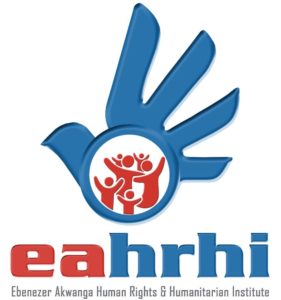REM will be central to the actions of the eahrhi. Remedy as a central feature in the international human rights and humanitarian efforts is important for restitution to victims of human rights violations. As the era of state centrism is increasingly challenged by the constriction of time and space fuelled by economic interdependence and technological advancement, the individual gradually emerges as a central figure and subject under international law. Since WWII there has been a proliferation of international treaties regulating the actions of states and other stake holders in their relationship with their peoples and other nations. It is also a truism that these treaties have given rise to a huge pool of case law which has further strengthened this regulatory mechanism. Other targeted treaties, conventions, enforcement bodies and adhoc set ups have been created by international and regional bodies as both pre-emptive and post crisis mechanism to hold violators of human rights and humanitarian law accountable for their actions
Despite the existence of treaties like the Convention against torture (CAT), the International Covenant on civil and political rights (ICCPR) and other regional settings like the African Convention on Human and Peoples Rights (ACHPR) and a more robust settings like the European Convention of human rights (ECHR), Amnesty International in its 2012 reports that human rights violations in Africa committed by security and law enforcement forces remained unaddressed. Why do some countries engage in torture and the deprivation of liberty while other countries comply with human rights standards and, consequently, refrain from abusing, torturing, or repressing their people?
The right to effective remedy is central to the goal of the eahrhi both at a domestic and international level because it is a mechanism through which individuals can seek redress for violations of their personal integrity rights. In order for remedies to be effective, they need to be enforceable. In practice victims face procedural and political barriers to lodge a claim, but even in those instances when their claims are successful and they obtain a positive judgment/award, the practical enforcement of the decision can be as hard, or even harder, than the process of bringing the initial legal claim. Often there are no effective remedies in the States where the acts were committed. These crimes normally imply and often require a certain level of State involvement. To obtain justice and redress implies that the State acknowledges responsibility and makes amends, but the perpetrators are often supported by the very States who should be punishing them. International law requires States to provide effective procedural remedies under domestic law to guarantee adequate reparation to victims of human rights violations. In other words, the right to reparation for torture and other human rights violations includes both the right to substantive reparations (such as compensation) and the right to effective procedural remedies to enable victims to access substantive reparations (for instance access to civil, administrative and criminal remedies).

